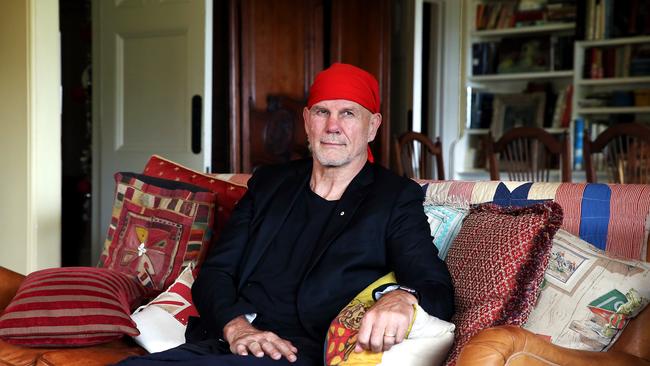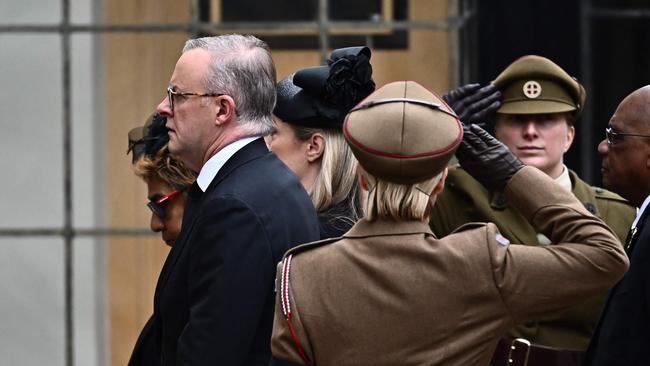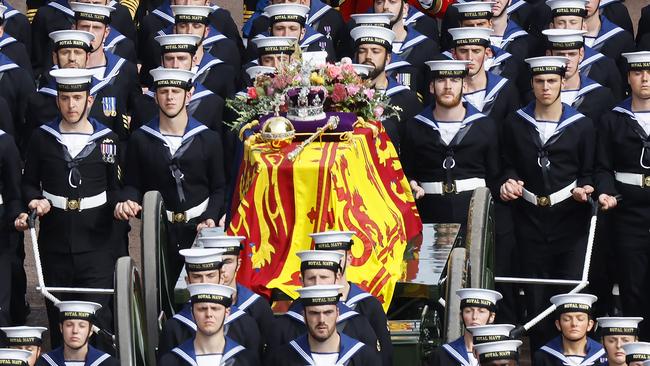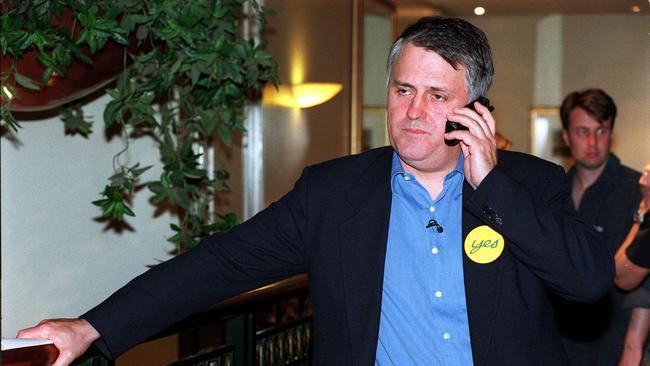James Morrow: Why the Queen’s passing will change our politics forever
Australians have had the chance to reconnect with the nation’s British inheritance, and they’re saying it’s better than any elite vision a republic might offer, writes James Morrow.
Opinion
Don't miss out on the headlines from Opinion. Followed categories will be added to My News.
If there is one good thing to come from the death of Queen Elizabeth II, it is this.
Australians have over the last two weeks had the chance to look at the choice between, on the one hand, being hectored by the likes of Peter FitzSimons about the unjust privilege of the royals and, on the other, placing our politics in the context of a much greater tradition that quite rightly keeps politicians from having too much power.
And they have chosen wisely.
Right now pretty much every poll says that ditching the monarchy is a non-starter among Australians.
And in what must be bitter news for ageing republicans still sooking over Gough Whitlam’s dismissal, one survey even found that among Labor voters support for the Crown has grown by almost 20 per cent over the past 10 years.

While many will say that this is entirely predictable after a two-week sugar hit of pomp and ceremony, allow me to suggest that there is more going on — and that the impact of the Queen’s death may reverberate in ways we have not yet considered.
Certainly it is true that the rising generation of progressives have moved on from the republic.
Paul Kelly, writing in this newspaper’s stablemate The Australian on Saturday, correctly pointed out that the campaign for the republic — “a resident for president” and all that — strikes young Australians as stale and irrelevant as it does not fit with today’s woke and narcissistic politics of the self.
Today the republic’s biggest boosters seem to skew old and posh and elite, earning high incomes and living in places like Sydney’s eastern suburbs and lower north shore (again, Peter FitzSimons in his mansion sets the tone here), shouting “power to the people” from their luxury 4WDs while railing against the privilege of the Windsors.

But allow me to suggest that the events of the past fortnight have exploded more than just republican hopes and dreams.
They have also reconnected Australia with the whole civic architecture of our British heritage which, incidentally, one does not have to be British to enjoy or benefit from, yet which had for so long been treated as an object of embarrassment by too many of those who hold the commanding heights of media, culture, and education.
For a good 50 years now, it has been a progressive article of faith that post-settlement but pre-multicultural Australia is nothing but a source of shame and a blot on our national character, marked by cultural blandness and genocidal atrocity.
With the exception of those who could demonstrate descent from an interesting convict and thus pick up some oppression points, “Anglo” Australia was thought to be the cultural equivalent of prison – mostly dull, and occasionally dangerous.
This is why the Australian Curriculum, introduced by Kevin Rudd and Julia Gillard and written by educators well versed in the Marxist pedagogy of the likes of Paolo Freire’s “Pedagogy of the Oppressed”, puts such an emphasis on Asian and Indigenous cultures.

It is also why among the progressive elite – particularly in the corporate arena – acts such as the Welcome to Country and support for an Indigenous “voice to parliament” have become almost religious in nature.
Needing the spectre of ritual to cement their own authority, and craving the legitimacy that their own belief system says depends on victimhood, they glom onto Australia’s ancient Aboriginal history and a one-eyed view of what has happened since to reinforce and recognise their virtue.
This is where the energy of the progressive elite is now focused, and despite the reassurances of those who claim to know better, it represents just as much of an attempt to install judges and activists and those with “right on” thinking above even parliament.
But despite what is clearly going to be a big push to get the “voice” over the line, the Queen’s death may just change the calculations of the campaigners, who will well remember what happened back in 1999 when the people looked at the vision of the elites and said yeah, nah.

And that is because for all its flaws the Australian system is finely tuned and fundamentally sound.
More than 20 years ago, not long after I first moved to Australia, one of my new mates explained to me why the republic referendum – which happened only a year or two before I landed – went down.
A part-time automotive journo, my friend explained Australia’s constitutional arrangements as being a bit like a classic Porsche with its engine up the back.
His basic point to me was that if you’re not familiar with the way it works and why, the thing looks like it should be a disaster waiting to happen.
After all, he pointed out, an outside observer would say the sports car’s motor is down the wrong end, the weight distribution is screwy, there’s no way the thing should be able to steer properly, and how could anyone but a daredevil keep from sailing the thing into a tree at the first turn?
Yet he explained that like the Porsche, Australia with its constitutional monarchy and governor-general and Queen (now King) on the other side of the world goes really well – enviably so.
And for the moment, and in the wake of the simultaneously majesterial and humbling funeral for the late Queen Elizabeth II, it seems Australians agree.





